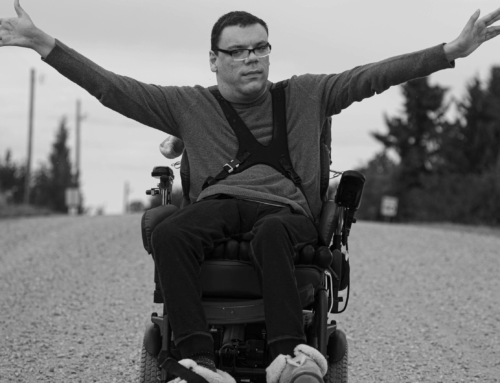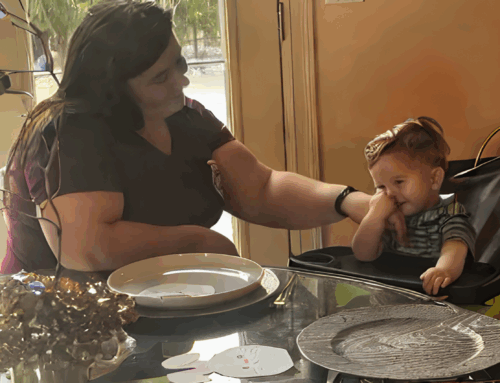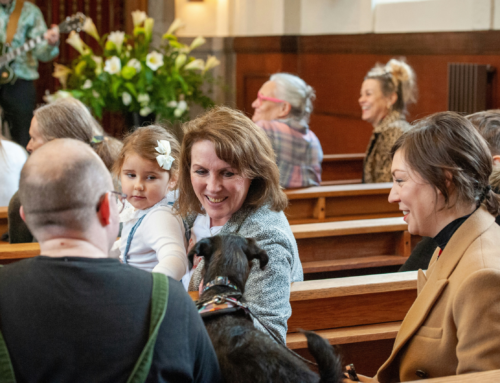Today we welcome Dr. Thomas Hentrich, of EcumenAbility, to share his observations on the past few months and his hopes for the future as faith communities move forward. EcumenAbility is an ecumenical project advocating for inclusion and belonging of people with disabilities into church life. For more information see its Facebook page.

June 2020: Three months into the COVID-19 pandemic and general lockdown and some churches have begun the process of ‘reopening’ their buildings to the general public in a controlled manner with safe distancing rules in places. However, many people still feel unsafe to attend live worship services and prefer the online versions. If we return to the way things were, churches will miss a great opportunity to create more inclusion and belonging for those who felt isolated before Covid-19 and were able to participate in church life through online worship.
The COVID-19 crisis has threatened the lives of people with disabilities more than any other parts of the general population. There are various reasons for this:
- a) Medical reasons: Many people with disabilities already have a compromised immune system, depending on the type of disability, and even under normal circumstances have to watch out not to catch any kind of illness. I speak from personal experience, as my son has a reduced immunoglobulin level that normally would fight any infection, besides having a developmental delay. Currently, we are constantly disinfecting everything that comes into the house…
- b) Social reasons: Some people with disabilities rely on the cooperation of a well-organized social network that would be available to them in times of need. During this time of physical distancing and isolation these networks may not function anymore as well as they would during normal times, i.e. attendants or friends may have contracted the virus and must now stay home or are in a hospital themselves. An important piece of the survival chain is now missing with potentially serious consequences.
- c) Ethical (or should I say unethical) reasons: Many countries have developed guidelines for hospitals and medical staff on how to distribute badly needed medical equipment for infected patients, such as ventilators. These guidelines generally are based on the survivability of the patient and medical equipment is then distributed accordingly. Mostly the elderly and people with disabilities would then end up on the bottom of the distribution list, which would in turn directly put their lives in immediate danger.
This last reason is a clear indication that in a real health crisis, some governments consider the lives of people with disabilities as a disposable burden.
As governments around the world were restricting movements and gatherings to mitigate the spread of COVID-19, churches of all denominations were not exempt from these rules. To adapt to this new situation, many churches got very creative and held virtual celebrations and services on social media to reach their isolated flock. As a personal example, my own parish priest, Fr. Keith Wallace of St. Bernadette’s Parish in Ajax, Ontario celebrated a virtual mass on his personal social media feed, as well as a daily religion class for children.

How did these COVID-19 restrictions affect people with disabilities, many of whom already felt unwelcome or ignored by their church even in normal times? Well, for many not much had changed in terms of accessibility or belonging to a church, when we think of church in traditional terms. However, these times of virtual and online worship found many people with disabilities at an advantage, as this has been part of their lives for quite some time. Jasmine Duckworth wrote in a recent blog post for The Disability & Faith Forum that
because disabled people often have extensive experience with isolation, there is a wealth of online information and connection. In my time of fear and isolation I found great comfort in the stories told by, and the communities formed by disabled people. Now that we are all traversing the land usually reserved for people with disabilities my hope is that these voices can be a comfort and a light to guide the way for the general public.
For all those who were feeling lost and disconnected from God during our time of self-isolation and physical distancing, we could use many examples provided by people with disabilities already in place before the COVID-19 pandemic. Those involve various versions of online worship. For example, you could access Karen Pitt’s livestream of Lazarus Christian Community in Timmins, Ontario or the UK’s Disability & Jesus’ Ordinary Office from almost anywhere in the world to experience closeness with Jesus, especially during these trying times.
With a reduced mass and service schedule, some pastors and priests were also taking this opportunity to broaden their outreach and offering online services to parts of the congregation or parish that normally would not get the same attention. I would like to again use Fr. Keith as my example, who was delivering a service in ASL in addition to his weekly online mass. This was not the case pre-Covid.

This health crisis is a continuing challenge for everyone, especially for people with disabilities. We must protect the most vulnerable, and in this time of ongoing social distancing we might have been put in the same position that people with disabilities find themselves on a regular basis. It is my hope that we learned how it feels to be socially isolated, yet to have an online opportunity to worship Jesus. I am hopeful that this will carry over to post-COVID church life as an opportunity to create some form of belonging for people with disabilities.



